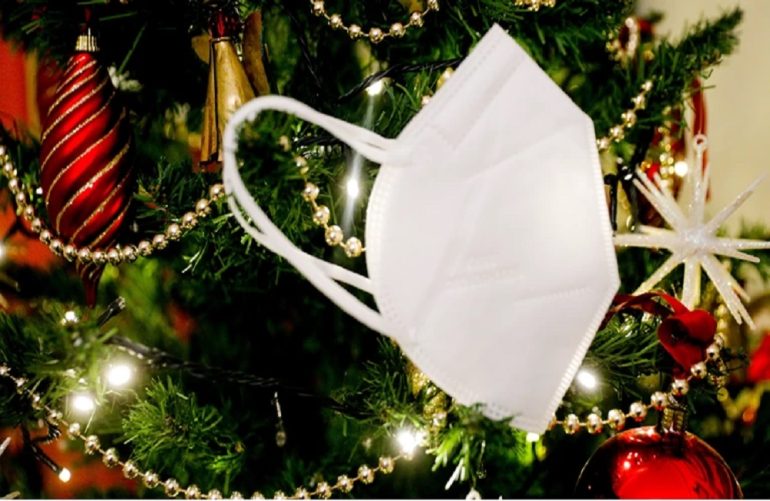In Greece, mandatory use of a high protection mask KN-95 or double mask for entering public transport and supermarkets, from today.
High protection masks are known by two names. As KN-95 which is its certification code in the US and as FFP2 which is its certification code in Europe.
What is the mask KN-95
It is a mask with five levels of protection and specially designed filter layers that provide great protection against viral viruses, thanks to nanofiber filtration technology.
According to an earlier circular, KN95 high respiratory protection masks are disposable and should not be combined with a second mask, but worn alone. They must be CE certified and have no exhalation valve, which allows the airborne droplets containing the virus to escape.
At the same time, this mask has an adjustable plate in the area of the nose, so that it is applied closer to the face for stricter protection.
How much do they protect?
According to a recent German study, KN95 enhanced protection masks, especially if applied well to the face without letting air in and out of the edges, can dramatically reduce the risk of coronavirus infection by less than 1%.
It is a personal protective equipment that according to experts is required in areas with an increased risk of coronavirus transmission.
Researchers at the Max Planck Institute for Dynamics in Gκέttingen, led by Eberhard Bodensac and Golamhossein Bagheri, who published in the journal National Academy of Sciences of the United States polluted air particles.
In the case of two people without masks who speak at a distance of three meters and one has a coronavirus with a typical viral load, the risk of infection of the other in a few minutes is up to 90%. If they are at a distance of one and a half meters and only the person without the virus wears a surgical mask, the risk of infection will again be up to 90% but in more time (after 30 minutes). But if he wears an FFP2 mask, his risk of infection will not exceed 20% even after one hour of discussion.
When both speak wearing surgical masks, the risk of infection of the latter does not exceed 30% after one hour, while if both wear masks of increased protection, the risk of infection is 0,4% (four chances in a thousand).
The study estimated that if both a person infected with coronavirus and one without such an infection wear well-fitting enhanced protection masks, the maximum risk of infection after 20 minutes even at a short distance from each other is about one in a thousand (0,1%) , that is, a chance in a thousand to stick to each other. If their masks do not fit well, then the chance of infection is around 4%. If they both wear well-fitting simple medical (surgical) masks, within 20 minutes the chance of transmitting the coronavirus is up to 10%.
According to the study, if two people - one with the coronavirus and the other without - do not wear masks, even three meters distance is not enough to ensure protection against the transmission of the virus. Even at this distance, according to the researchers, it takes less than five minutes for an unvaccinated person to be almost 100% more likely to be infected by a person with coronavirus.
"We did not expect that at a distance of several meters it would take so little time for an infectious dose to be absorbed by the coronavirus vector." "In our study we found that the risk of infection without masks is extremely high after just a few minutes, even at a distance of three meters, if infected people have a high viral load of the coronavirus Delta variant," said Bodensac, director of the Institute.
The researchers noted that the chances of infection they calculated were the highest, while "in everyday life the actual chance of infection can be ten to 100 times lower", which largely depends on how much air leaks or enters from the extremities. of the mask, when it does not fit well on the face.
They calculated that a well-applied KN95 mask provides up to 75 times more protection than a well-applied surgical mask. The latter in turn, even when not applied well, significantly reduce the risk of infection in the absence of a mask.
"It's therefore very important that people wear a mask in the midst of a pandemic, as our findings show," the researchers concluded.
